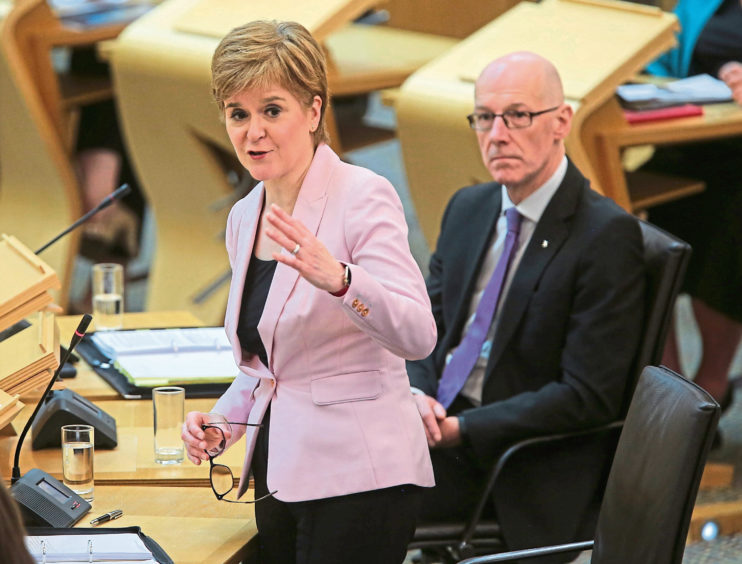
Last week I listened to an episode of the Woman’s Hour podcast on BBC Sounds, which posed the question: “Are female leaders managing the Covid-19 crisis better than the men?”
I was interested to hear more about whether politicians, including New Zealand’s Jacinda Ardern, Germany’s Angela Merkel and our own Nicola Sturgeon, really have handled the pandemic differently to their male counterparts – especially after I saw new statistics that seemed to back up the theory.
Findings from the Centre for Economic Policy Research and the World Economic Forum, also released last week, showed countries led by women had “systematically and significantly better” coronavirus outcomes thanks to their more proactive and coordinated policy responses.
Initially, I thought it must be a no-brainer. After all, the rapid response of Ms Ardern, for example, has meant Kiwis were one of the first in the world to come out of lockdown, and the country has so far only suffered 22 deaths from the virus – compared to America’s estimated 173,000.
One aspect that may have had an impact is the fact that women, generally, tend to be the more caring and nurturing gender, and so perhaps a desire to protect the population has led to lower death tolls in countries run by female politicians. The data certainly seems to think so, with the researchers pointing out that women were quicker to implement lockdown rules, despite potential for longer-term economic implications.
However, I think one more relevant factor here is that women have had to grow up in a world that is not made for them. Historically, we have not had our voice heard, held power or wielded influence – after all, as James Brown famously sang, this is a man’s world.
As a result, women are naturally more open to seeking advice from others, adapting, learning quickly, and listening – something which seems to have resulted in our female leaders putting their faith in the scientists who have the expertise to lead us out of this pandemic.
In contrast, Donald Trump suggested drinking bleach. I’ll just let that sink in…
Although female-led countries have fared better, I think it’s important to also recognise there are multiple contributing factors outside of gender. Geography, previous experience of viral diseases and population density can all have an effect, as well as how the citizens themselves react to the rules and regulations. So, we can’t say it’s as cut and dried as men vs women.
But it’s also important to remember that only 19 of the almost 200 countries examined in the study are led by women, which means 90% of our world leaders are still men.
We’re still so far behind in terms of equality at the top, where decisions are made, so any acknowledgement that our pioneering women politicians are getting it right can only be a good thing. And, hopefully, Jacinda, Nicola and Angela will inspire a new generation of young women.
After all, anything men can do we can do – better.

Enjoy the convenience of having The Sunday Post delivered as a digital ePaper straight to your smartphone, tablet or computer.
Subscribe for only £5.49 a month and enjoy all the benefits of the printed paper as a digital replica.
Subscribe © PA
© PA